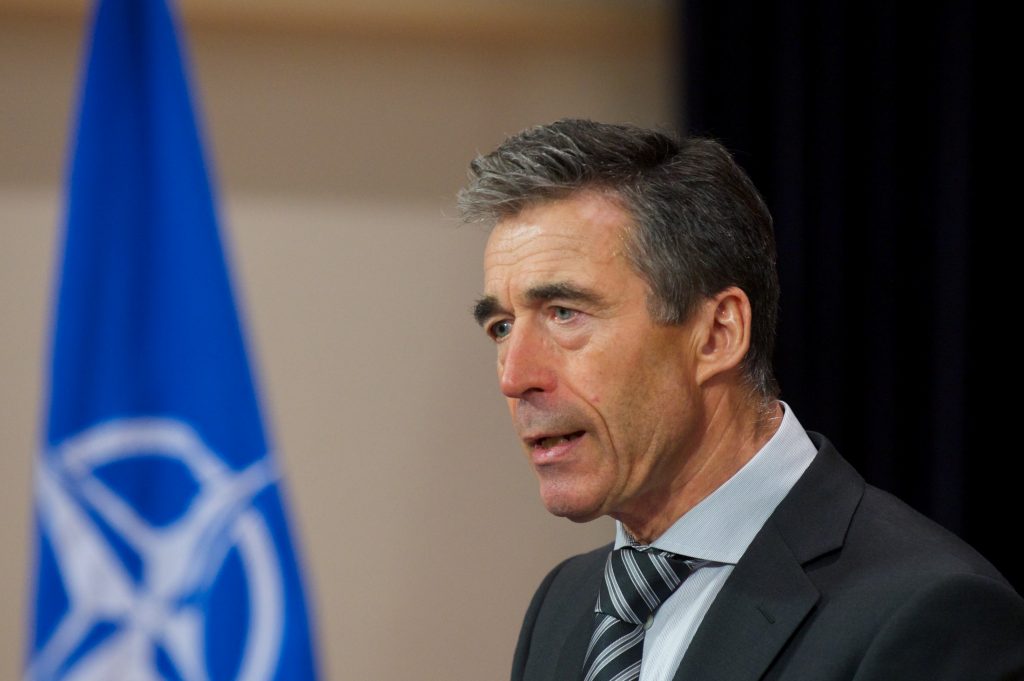
From Anders Fogh Rasmussen, Danish Institute for International Studies: There is no doubt that the economic crisis is challenging for the defense ministers, and all of the alliance. Defense budgets are under pressure but, – I know it is a cliché, but it is also a truth- in any crisis, there is an opportunity. The opportunity here is to use the economic crisis as a lever for continued reform, modernization and transformation of our armed forces. In very specific terms, the most important impact of the economic crisis, will be the development of what I would call a new culture of cooperation. It may be that we won’t get much more money in the future, – I think this is a realistic scenario – but then we have to spend the money we do have in a more efficient way. The way to do that is to strengthen cooperation across borders, since it will be increasingly difficult for individual allies to acquire the necessary military capabilities on their own. But if we join efforts, if we pool and share resources, and go for multilateral solutions, then they can. That’s what we call smart defense, because it is a smarter way of spending defense money. I do believe that the outcome of the economic crisis will be a strengthened alliance because allies realize that they need to strengthen their collective approach. It might seem as a paradox, but I do believe that that will be the eternal impact of the economic crisis. Let me just add, this is not just about the economic crisis: the economic crisis makes it obvious that we have to spend our defense money more efficiently. But the long term trend is that the cost of advanced military equipment is rising more rapidly than GDP and inflation. So unless we find new ways of working together, it will be increasingly difficult to acquire the necessary military capabilities. Hence, it’s not just about economic austerity – it’s a long term trend. . . .
The term “smart defense” has really gained ground in domestic policies and you will see, – for example in the recent Danish agreement on defense, that smart defense is a really important element, and the same goes for other allies. The challenge will be to transform that political will, into some concrete acquisition of military capabilities. We have already launched 24 smart defense projects, but I would very much like to see what we might call flagship projects – bigger projects – e.g. acquisition of long distance transport aircrafts, air-to-air refueling capacity, capacities within intelligence, surveillance and reconnaissance, just to mention areas where we have identified shortfalls. Those gaps should be filled through smart defense. . . .
It is indeed challenging to solve that problem, but we will have to solve it, and once we do that, – and it can be done in documents, in a memorandum of understanding – there are many specific ways it will also strengthen the collective political commitment to our alliance. This would really develop a new culture of cooperation, I spoke about before: this is the political aspect, and it is very important to strengthen the glue of our alliance. It will be demanding, and we are struggling with that. It is not easy because nations – for many good reasons–will do what they can to protect national sovereignty, when it comes to defense and security. So to strike the right balance between, on the one hand, sovereignty, and on the other engagement in collective solutions and assuring that the collective asset can be deployed, that will be a challenging political task.
Excerpts from interview of NATO Secretary General Anders Fogh Rasmussen by Trine Flockhart and Fabrizio Tassinari, Senior Researchers at the Danish Institute for International Studies, DIIS. (photo: NATO)
Image: nato%204%2025%2013%20Rasmussen.jpg
